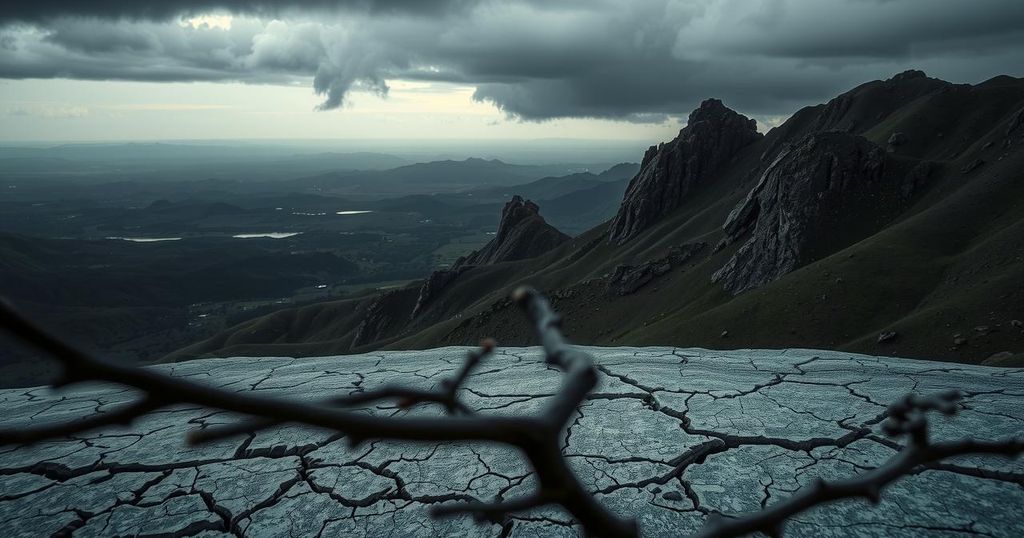President Felix Tshisekedi of DR Congo has curtailed his Davos trip due to escalating violence from M23 rebels, who have seized significant territory in the eastern region. Over 400,000 people have been displaced since the onset of the year, raising humanitarian concerns as the rebels approach Goma. UN Secretary-General Antonio Guterres warns of potential broader regional conflict, urging respect for DR Congo’s sovereignty and cessation of support for armed groups.
The President of the Democratic Republic of Congo, Felix Tshisekedi, has interrupted his attendance at the World Economic Forum in Davos to address the escalating violence in his nation. The situation has deteriorated significantly, particularly in the eastern regions, where M23 rebels, allegedly backed by Rwanda, have expanded their territory and intensified assaults since the beginning of the year. With over 400,000 individuals displaced amidst this turmoil, humanitarian concerns are rising as the M23 pressures the provincial capital, Goma.
As the M23 rebels have captured key towns such as Masisi and Minova in North Kivu, the risk of Goma falling into their hands poses a grave threat. The city, home to over a million residents and strategically located near the Rwandan border, witnessed a previous takeover by the rebels in 2012. Despite recent attempts by the Congolese army to defend the town of Sake, located only 20 kilometers from Goma, the local populace continues to flee, setting off on perilous journeys with essential belongings.
The conflict has persisted since the M23 resurgence in 2021 and has resulted in countless displacements from the mineral-rich eastern DR Congo. Though there was a lull in fighting mid-2022, clashes resumed with renewed urgency, prompting the urgency of President Tshisekedi’s return. Neither the Rwandan government nor the M23 has confirmed allegations of external support, yet the United Nations highlights concerns over the potential escalation into a wider regional conflict.
United Nations Secretary-General Antonio Guterres has expressed deep concern regarding the potential for the current conflict to spiral into a larger war, urging respect for Congolese sovereignty and an end to support for armed groups. This escalating crisis draws international scrutiny, demanding a comprehensive response to safeguard the stability of the region.
The ongoing conflict in the Democratic Republic of Congo has historical roots, with various rebel groups vying for power in areas rich in natural resources. The M23 movement is particularly significant, having emerged from earlier conflicts and criticized for its alleged ties to Rwanda. The instability in the eastern territories has led to consistent humanitarian crises, prompting international organizations and local authorities to respond to the ensuing displacements and violence. The current surge in fighting significantly impacts Congolese civilians, further complicating peace efforts in the region as foreign interests and regional dynamics influence the conflict.
The conflict in the Democratic Republic of Congo is rapidly escalating, with President Tshisekedi’s premature return from the World Economic Forum highlighting the severity of the situation. The M23 rebels’ advances threaten regional stability and civilian safety, prompting urgent responses from both national leaders and international bodies. As the humanitarian crisis deepens, calls for accountability and an end to external support for armed factions become increasingly vital to restore peace and security in the region.
Original Source: www.bbc.co.uk






